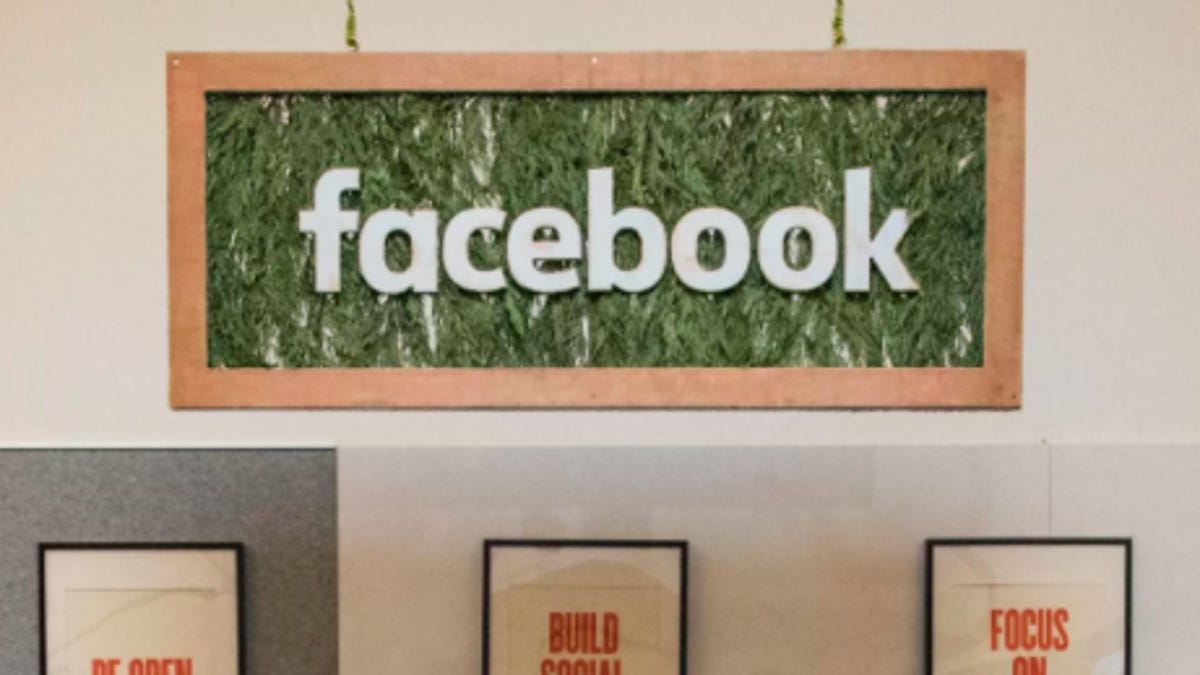Facebook says you aren't the product, social media is
The social network's vice president of ads seeks to answer the "hard question" of how much data the company has on its 2 billion users and how it's used.

Inspirational posters hang on the walls of Facebook's headquarters in Menlo Park, California.
Facebook is confronting the adage, "If you don't pay for it, you're the product."
That belief has stung Facebook CEO Mark Zuckerberg repeatedly as people raise concerns about how much information they give the social network in exchange for its free service. Since mid-March, the Cambridge Analytica data-mining scandal has forced Facebook to confront the issue more directly than it ever has before.
Rob Goldman, Facebook's vice president of advertising, addresses that concern head on in a "Hard Questions" blog post Monday as he answers the question: "If I'm not paying for Facebook, am I the product?"
"No. Our product is social media -- the ability to connect with the people that matter to you, wherever they are in the world," Goldman said in the post.
He compared Facebook's free use and business model with advertising for websites, newspapers and search engines.
"The core product is reading the news or finding information -- and the ads exist to fund that experience," he added.
Facebook's argument dives into the semantics of what a "product" is, Daniel Ives, an analyst at GBH Insights, said. The company is actively "defending their advertising fortress," he said, going to great lengths to protect its model.
He says Facebook is right when it says the company's product is the social network, but that product isn't what turned Facebook into a multibillion dollar company. "Their product is social media, but their ability to monetize comes from their advertising," Ives said.
So yes, Facebook amassed billions of users through it's "product," but it was the company's data as a product for advertisers that lead to the company's fortune, he added.
The blog post also touched on how much data the social network has on its 2 billion users.
Advertising keeps the social network free, which Zuckerberg noted earlier this month during congressional testimony when lawmakers asked the CEO if the company would consider charging users. The question of a paid version of Facebook came up a fews day before his testimony when Chief Operating Officer Sheryl Sandberg suggested that if people want it ad-free, Facebook might have to start charging a subscription fee.
Goldman said Facebook doesn't sell information to advertisers but does collect data on people in bulk to help advertisers target specific groups. He gave an example of a bike shop that wanted to specifically reach female cyclists in Atlanta. If your Facebook profile suggests you fit the mold, the social network targets ads to you.
"We provide advertisers with reports about the kinds of people seeing their ads and how their ads are performing, but we don't share information that personally identifies you," Goldman said.
First published at 7:13 a.m. PT.
Update at 11:25 a.m. PT: Adds comments from an analyst.
Cambridge Analytica: Everything you need to know about Facebook's data mining scandal.
Tech Enabled: CNET chronicles tech's role in providing new kinds of accessibility.

